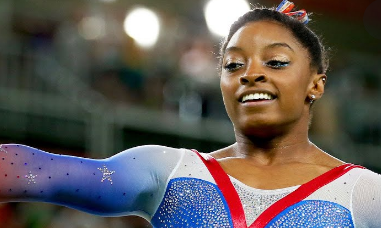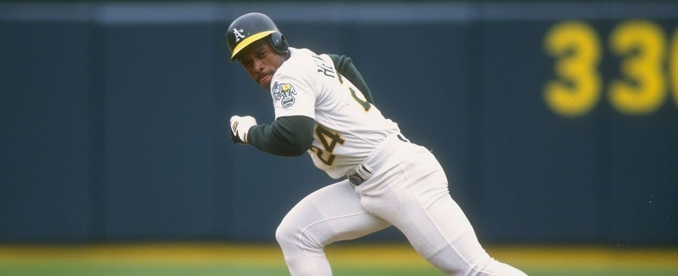Photos: YouTube
Simone Biles is a globally known gymnast and athletic hero. But her recent admission that she is suffering from mental health problems maybe more heroic than anything she ever did on the athletic field.
Simone Biles’ exit from the Olympics stage in Tokyo has stunned the sport world as many were looking forward to seeing this champion gymnast adding to her multi-medal career count as the most decorated American gymnast ever.
Citing mental health concerns, along with performance pressure, Biles removed herself from competition reportedly after accessing she was not fully focused and that she didn’t want to hurt her American team. And given the difficult acrobatics gymnasts perform–like the ones that catapulted Biles to stardom–any lack of focus can cause serious injuries.
Biles’ courage in admitting she doesn’t have a perfect life–which challenges a dumb assumption many in the public have about superstar athletes and other celebrities–should be used as a starting point to a needed discussion regarding mental health challenges, and how it stalks celebrities because of unhealthy public expectations and obsessions.
On Monday, Biles said she felt “the weight of the world” on her and pointed out something that should go without saying, “We also have to focus on ourselves, because at the end of the day we’re human, too. We have to protect our mind and our body, rather than just go out there and do what the world wants us to do.”
Biles is now the second high-profile Black female sports superstar to step aside from high-level competition citing mental health concerns recently.
Last month, tennis phenom Naomi Osaka made global news after withdrawing from Wimbledon following the insensitive actions of tennis officials who disregarded her concerns regarding her battle with depression–and, importantly, the anxiety she feels when engaging with members of the paparazzi press. Osaka’s recent loss in Tokyo has some even questioning if her Wimbledon hiatus contribute to her loss.
It should be noted that Biles and Osaka, two Black women, are now making it easier to talk about something that is usually avoided in discussion, especially in Black communities plagued with social factors that create fertile soil for mental health problems. Because of this, both women should be applauded for the attention that the topic of mental health is now generating.
Now, for one thing, let’s state this: far too many people forget sports superstars (or any accomplished celebrity for that matter) are as Biles reminds us “human, too.” Unfortunately, too many don’t realize superstar athletes, like Biles, are only superhuman because they just work super hard. This is especially overlooked when the athlete is Black because of old racist notions that Blacks are just more blessed with athleticism.
Moreover, Black athletes are always held to a higher standard than others. Consider the recent racist attacks against Black British soccer stars. For Black female athletes they must face a double dose of prejudice because of Western patriarchy and racism.
To make matters even worse, we live (especially, in America) in a celebrity obsessed media ecosystem where fame often becomes an albatross around the necks of standout athletes and where normal boundaries vanish. Celebrity fame basically means the end of much of what can be called a private life. In certain instances, this reality has led some to withdraw completely from public life, with individuals locking themselves away from a world demanding everything from them. Is there any wonder then that some even develop dangerous addictions–which then leads to their deaths, as we’ve seen with outstanding cultural celebrity artists like Michael Jackson?
One of the things that must be addressed is our unhealthy fixation with fame–and the media’s role in perpetuating this. America’s mainstream media, more than any other institution, broadcasts to the masses the problematic message that the lives of the famous is all glitz and glamour. The media rarely shows the daunting sacrifices these people make to achieve their goals.
And so today, with the increase of social media platforms, like Facebook, we see what can be called the Hollywoodization of the public. Everyone wants to be famous but not enough are willing to work to get there, and are clueless about the consequences that fame will bring.
And this is why we have those who don’t understand what Simone Biles is saying now. Incredibly, some are questioning the mental strength of this fearless Black woman who has won more world medals as a gymnast (25) and gold medals (19) than anyone in history. Biles won some of these medals when she was battling numerous injuries. Of course, these critics are the kind who never competed on any serious level for anything in their lives.
Here’s something we must also face: America has an epidemic of mental health problems that have been long downplayed, if not outright overlooked.
According to Mental Health America, “Nearly 1 in 5 American adults will have a diagnosable mental health condition in any given year.” And “46 percent of Americans will meet the criteria for a diagnosable mental health condition sometime in their life, and half of those people will develop conditions by the age of 14.” These figures are scary enough but don’t reflect the true nature of the problem since many who need help won’t seek help either because of the stigma or because of economic factors.
On our television screens, we see commercials for anxiety and mental health medications. And because we can be prescribed pills and drugs, the deeper reasons for these causes of our mass anxiety and depression are being ignored. We refuse to accept the fact that societal factors–which are crying for redress–are major reasons for our mental problems. Instead, we pretend everything is fine when it clearly isn’t.
Black Americans, in particular, have always been vulnerable to mental health issues–primarily because of the racist violence and oppression we face daily living in American society. And because it is considered weakness, we often try to cover up these pressing problems.
As a highly accomplished Black female superstar athlete Simone Biles has made it easier for us all to talk about the mental health issues that face many of us living in American society.
Hopefully, we all learn something from her courage and follow her lead by having a national conversation about mental health in America.








